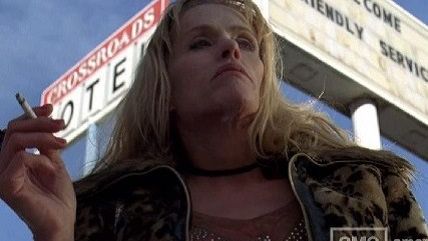Breaking Bad Normalizes Idea of Meth, Draws Margins of Society In, Prosecutor Argues
Really?


Blake Ewing, an assistant district attorney near Austin, Texas, penned an opinion piece explaining why he thinks the AMC television show Breaking Bad, about a cancer-stricken chemistry teacher turned meth cook and kingpin normalizes the use of meth and makes the police's job harder. Via Time Magazine:
Law-enforcement officers' duties bring them into contact with the drug-addled on a daily basis, so the proliferation of dangerous drugs directly affects their lives and families more than it might affect yours or mine. And while Breaking Bad may not glorify meth in the sense of making it attractive to the average viewer, it does normalize the idea of meth for a broad segment of society that might otherwise have no knowledge of that dark and dangerous world.
Before Breaking Bad, relatively few people knew someone whose life had been touched by meth, but now millions more people have an intense emotional connection with at least two: Walter White and Jesse Pinkman. And suddenly, for those spellbound viewers, the idea of people using meth is a little less foreign, a little more familiar. And that false sense of familiarity is inherently dangerous.
Ewing stresses that he's not arguing in favor of censorship in the name of public safety, but that "sometimes great art affects culture negatively," suggesting that some "people on the margins of society" will certainly be attracted to the use of meth by the show. That idea seems ridiculous. It's doubtful people "on the margins" will be any more interested in being like Skinny Pete or Wendy, or even Jesse Pinkman. Notably, the main character Walter White only uses drugs once through the run of the show but is probably the most loathsome character in the Breaking Bad world.
Ewing's assumptions about people on the margins of society is illustrative of the attitude law enforcement takes toward a population it considers more an enemy than people who should also be served and protected. Meth became the media's drug panic of choice years ago, before Breaking Bad ever premiered, and, more importantly, crystal meth would likely never have become a recreational drug in the first place if it weren't for the drug war increasing the costs of safer alternatives.
More Reason on meth here, and watch Reason TV's "The Real Breaking Bad: How the Drug War Creates Collateral Damage" below:


Show Comments (149)